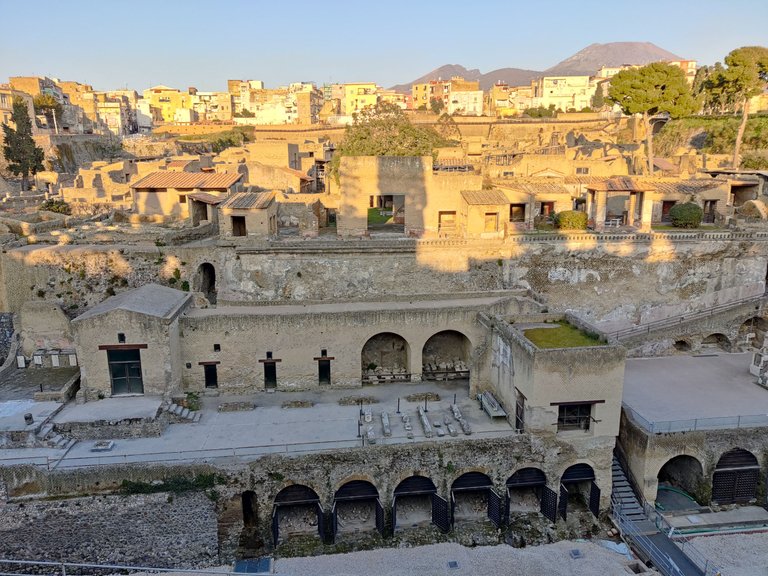

History can tell us different stories. Sometimes informative, sometimes as a warning. The happenings of the past can teach us what not to do or can guide us to rational and logical thinking. Technologies emerging from our ancestors can teach us how to apply that same way of thinking to modern day inventions. The point is: there are many things we can take from what history tells us, and even more ways to apply that.
This thought hits even harder when confronted with it in close proximity, which is exactly what happened to me in Ercolano, Italy, when confronted with the ruins of a small village near Napoli in the south of the country. The village is called Ercolano, or Herculaneum in English, because of the myth that this was the place where the famous demigod Hercules grew up.
Whether gods and demigods existed is still a question that is worth exploring further, but the village itself did exist at some point in time, as is evident by the remaining ruins. This village became ruin when the nearby volcano Vesuvius erupted thousands of years ago. A more popular victim of this eruption is the slightly larger town of Pompeii. And even though we visited there as well, Ercolano is where the confrontation with reality hit.
Why is this? Well, if you zoom in on the bottom of the picture, you can see exactly why withing the gates below the building. During the time of the eruption this is where the beach was, and having knowledge of the disaster happening, the people were actively escaping their impending doom via the waters. Some people who didn't make it, for whatever reason, decided to hide in the ship docking areas, hoping that being close to water would save them.
But if you zoomed in, you already know, this was not the case. Staring back at you are countless amounts of lifeless bones of those unfortunate souls.
And while this was almost 2000 years ago, it still hits hard when you think about the situation and the reality of it all.

This oldie by Buju Banton definitely runs parallel with some of these thoughts. While it might be more about those who are less fortunate having to stay behind and endure in an economical sense, it still holds that the people who were left behind hiding were probably weaker in some way than the rest that did manage to escape. I'm guessing that the rich and wealthy, or even those in slightly more favorable positions had better access to escape routes, compared to the "common folk". Buju says it well" "It's a competitive world for low budget people"
In the end, despite the circumstances the people tried to survive, but failed.
And while their remains lay idle for eternity, their untold stories remain.

#APART is an initiative by the IRIE down-to-earth people at the ReggaeJAHM Community where you share a picture alongside a Reggae tune the picture reminds you of.
Check out this post for more info on #APART and join the movement. 🙃
[ Uniquely clever sign out message goes here ]








